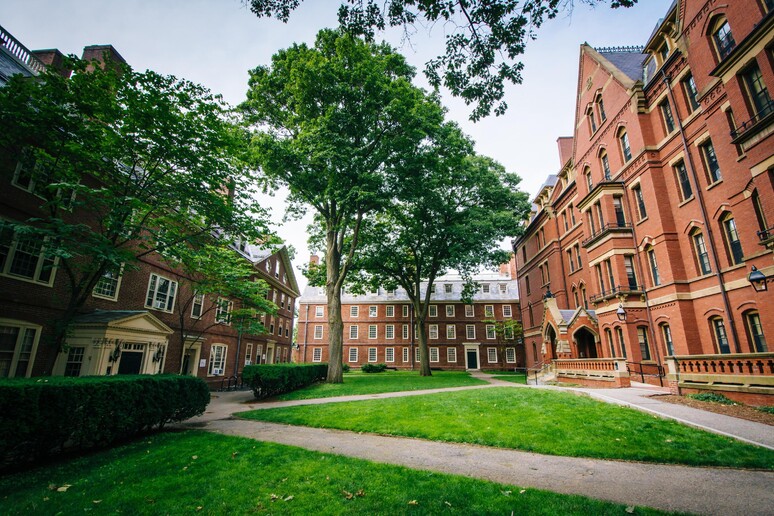The Trump administration wasted no time in responding to Harvard’s refusal on Monday to comply with a series of demands in order to continue receiving $9 billion in federal funding. Later that evening, federal officials announced they would freeze $2.2 billion in multi-year grants allocated to Harvard, as well as a $60 million contract.
Harvard was the first Ivy League university to push back against the White House. In a statement, President Alan M. Garber declared, “We have informed the administration through our legal counsel that we will not accept their proposed agreement. The University will not surrender its independence or relinquish its constitutional rights.”
In a letter addressed to Garber dated April 11th, officials from the General Services Administration, the Department of Health and Human Services, and the Department of Education made a list of demands that they said must be met in order to “maintain Harvard’s financial relationship with the federal government.” The list is broad, demanding “reforms” to governance and leadership at the school; changes to admissions policy and hiring policy; and also stating that the school must agree to send quarterly reports to the government to ensure compliance “at least until the end of 2028,” which is around when President Trump’s term would end.
Harvard would also have had to agree to the “discontinuation of DEI,” and accept an audit from an external party to ensure “viewpoint diversity” among the “student body, faculty, staff, and leadership” at the school. Ten programs at the school were targeted for an audit as well due to what the Trump officials claimed were “egregious records of antisemitism or other bias,” which included the Divinity School and various programs on human rights and/or the Middle East. The letter also targeted Palestine activists in particular, accusing a number of student groups such as the Harvard Palestine Solidarity Committee, Harvard Graduates Students 4 Palestine, Law Students 4 Palestine, Students for Justice in Palestine, and the National Lawyers Guild of “anti-Semitic activity,” and called for a mask ban on campus with a penalty that is “no less than suspension” from the school.
“The administration’s prescription goes beyond the power of the federal government. It violates Harvard’s First Amendment rights and exceeds the statutory limits of the government’s authority under Title VI,” Garber writes in his response. “And it threatens our values as a private institution devoted to the pursuit, production, and dissemination of knowledge.”
So far, the Trump administration has targeted seven universities with demands while threatening to withhold federal funds: Brown, Columbia, Cornell, Harvard, Northwestern, University of Pennsylvania, and Princeton. Harvard is the first to declare its opposition to the demands, and most of the other schools’ officials have expressed concerns over them. Columbia, however, has largely capitulated, agreeing to a list of demands to change its policies regarding protests and security on campus, after Trump threatened around $400 million in grants to the university. These include hiring 36 “special officers” to its security force who can remove people from campus and even make arrests, as well as a new senior provost who would review the school’s programs on the Middle East.












